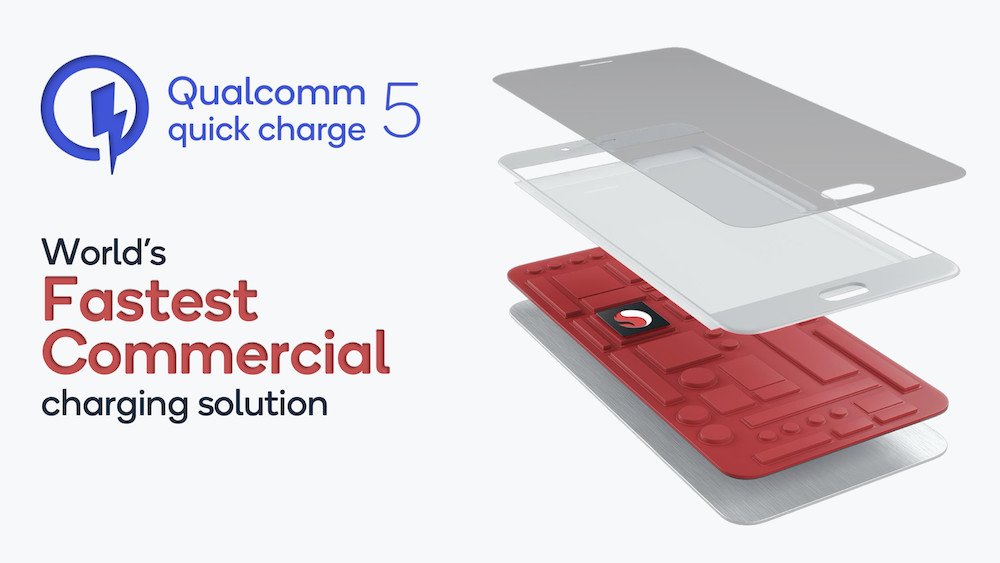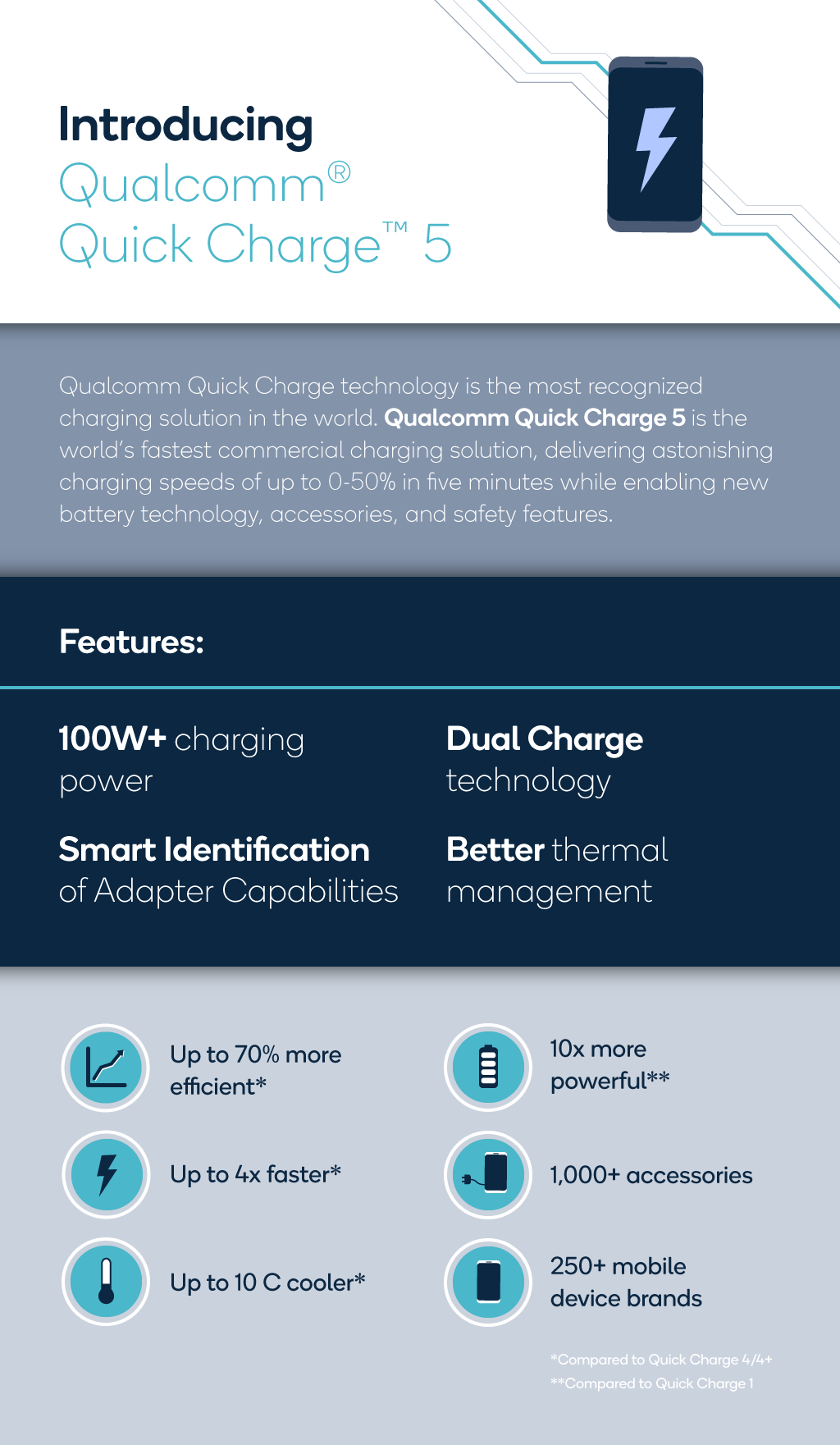This sets the standard for the next few years of fast charging on Android.
What you need to know
- Qualcomm's Quick Charge 5 system now reaches over 100W for incredible speeds.
- Phone charges hit 0-50% as fast as five minutes, while being 70% more efficient than QC 4.
- The technology continues to be be compatible back to QC 2.0 and with USB-C PD.
Qualcomm's fast-charging standard has reached a new milestone, with Quick Charge 5 introducing dramatically faster charging speeds, increased efficiency and continued cross-compatibility. The big move is the jump to 100W (and higher) charging, which is the big news of 2020 as OPPO has already announced its own proprietary 125W charging. The headline-grabbing results speak for themselves: a typical smartphone can be charged 0-50% in just five minutes, and reach 0-100% in 15 minutes.
Just like the other super-fast-charging solutions, Quick Charge 5 works primarily by allowing phone makers to split their "battery" into two identically-sized batteries, which each have their own controllers and can both charge at the same rate — therefore doubling the effective charging rate of the whole thing. Even though there are two physically-separated batteries in the phone, they can be addressed as a single battery as far as the rest of the phone is concerned; similar to the way laptop batteries are designed.
What's particularly impressive about the development is that Quick Charge 5 reaches these speeds up to 70% more efficiently than Quick Charge 4 while running at lower average temperatures. On the charger side, the entire technological solution enabling QC 5 fits in the same footprint as QC 4 as well, so accessories theoretically don't need to get any larger when they move to their next generation of charging speeds.
Only by dramatically increasing efficiency and reducing heat can you reliably charge this quickly, and Qualcomm of course claims it's made particular enhancements to prolong battery health. As we know, the faster you charge a battery, the more damage you're doing to it — and now at these incredible speeds, we're walking a fine line of potentially damaging our batteries at an unnacceptably fast rate.
Quick Charge needs to be good, because we need a cross-device fast-charging standard.
On the device side, companies using the Snapdragon 865 onward will be able to support Quick Charge 5, and Qualcomm says QC 5 support will also be offered on 700-series chips. As ever, the phone maker still has to choose to use QC tech, and not every company does — OnePlus being a notable exception. Accessory makers can easily include QC 5 in their chargers while retaining cross-compatibility with USB-C PD (Power Delivery), too, which is important for fans of open charging standards. QC 5 is of course backward-compatible all the way to Quick Charge 2.0, both on devices and accessories, so your phone will take as much as a charger can offer and chargers will output as much as they can.
The huge benefit of Quick Charge 5 is that it's going to be available across a variety of phones and accessories, if the history of Quick Charge is anything to go off of. There may be other great fast-charging solutions, including ones that will be slightly faster than QC 5, but none of them will be available across dozens of phone and accessory companies. I still seriously believe in the more open standardization of USB-C PD for charging, but Quick Charge comes in a close second, and Qualcomm has so far been a great steward of this relatively open charging standard.


Tidak ada komentar:
Posting Komentar